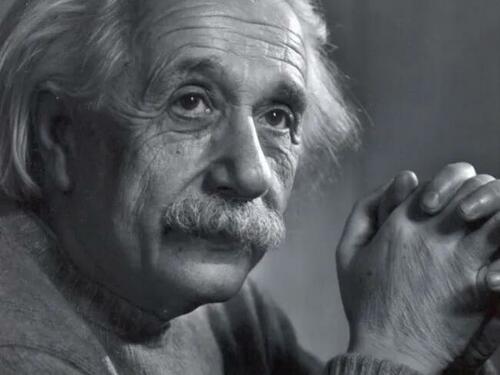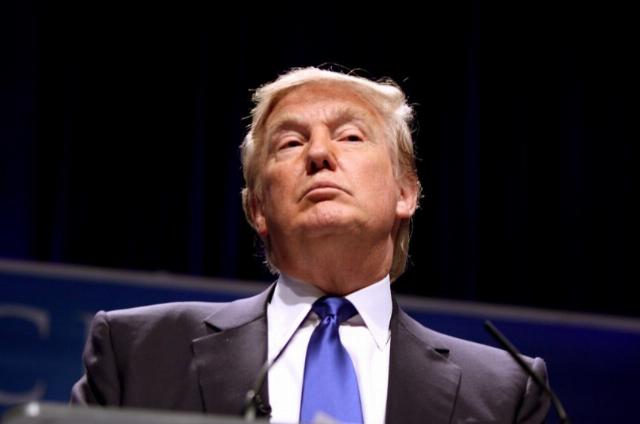
Authored by Kgatlhiso Darius Leshaba via The Mises Institute,
In the year 1949, the first issue of the socialist publication Monthly Review was released. Within the collection of essays, one stood out in particular. Notably, its author was none other than Albert Einstein. Somewhat misleadingly titled “Why Socialism?” the essay reads more like a critique of capitalism than a justification of socialism. In it, the brilliant physicist lays out his reasons for rejecting private property and briefly sketches out his vision for a moral and just society.
Now, 75 years after the first appearance of the essay, I believe a critical analysis is in order.
Einstein begins his essay by justifying his (and other non-economists) right to chime in on the debate about socialism. While I agree with the broad sentiment, the specific points strike me as worryingly naive. The first is that, due to the fact that since the history of most states is one of violence and coercion, conventional economic theory, as a product of the past “predatory phase” of human development, is ill-equipped to “throw…light on the socialist society of the future.”
This seems to imply that not only should non-economists’ opinions be considered just as valid as professional economists, but that the opinions of economists are tainted by the context of their formation, and thus not adequate to comment on the nature of the future socialist paradise. At some point or another, socialists must come to realize that the nature of their envisioned society must be investigated if they are going to avoid repeating the catastrophes of the 20th-century experiments. An analysis of the incentives of such a system is crucial for evaluating if such a system would indeed serve as an improvement to the current state of affairs. The only field of study with the tools for this is economics, in all its depth and breadth.
The second point made is one I wholly agree with, that economics as a science cannot choose ends, but can only inform the means for the attainment of desired ends. Thus, the question of what ends should be chosen lies outside the field of economic analysis, but the analysis of the means chosen for the attainment of desired ends is fair game.
Einstein then goes on to lay out a brief theory of the relationship between the individual and her society. The main point in what he terms the “crisis of our time” is that the willful dissociation of individuals from their group identities leads to a nihilistic isolation for which capitalist societies are to be blamed. Einstein seems to fail in recognizing society as an abstract concept representing numerous individuals and their various interactions, direct and indirect, across time.
Einstein then goes on to state that the modern individual depends wholly on “society,” however, this isn’t the entire picture. Since society is an abstract sum of individuals, it’s better to (at least partially) disaggregate the concept of society and understand that an individual’s interaction with society is ultimately just an interaction between individuals. One is not in a parasitic relationship with the society they belong to, the relationship is mutualistic. Man does not simply receive “food, clothing, a home, the tools of work, language,” man must also provide something of value to society. It may, therefore, be true that the dependence of the individual on other people’s efforts is a fact of nature, but the opposite—that the relative success of other people’s efforts relies on the efforts of the individual—is true as well.
Einstein fails to realize that the pushback against the desires of the group often arises from coercive attempts to enforce those desires, rather than from a rejection of interdependence altogether. Einstein even makes the claim that the way people find meaning is by serving the desires of the group. There is an important qualification that is missing here—that if they do decide to serve the desires of the group, it must be voluntary and not coerced.
Here is where we begin to run into Einstein’s “Marxist” critiques of capitalism.
We start off with the Marxist exploitation theory, built on the back of the labor theory of value. Einstein says, “…what the worker receives is determined not by the real value of the goods he produces…”
The first problem we run into is the concept of value. It has been firmly established that economic value isn’t intrinsic, that, “The measure of value is entirely subjective in nature.” Value is not transferred somehow from labor to product. In fact, the direction of the imputation of value is exactly the other way around. The economic value of labor is determined by the value of the final product it aids in producing. Therefore, I agree with Einstein, worker pay isn’t determined by the “real value” of what they produce but only because it cannot be determined by something that doesn’t exist. Einstein also seems to believe in the outdated subsistence theory of wages which had long since been disproven by the time Einstein’s essay was published.
Einstein then goes on to cite wealth inequality and the resulting distortion of the political landscape by private special interests. He is correct in that the market economy does not make people equal as there is no reason to expect it to do so. People are different, masters of different skills and trades (trades that are valued differently by consumers), leaving little reason to expect remuneration for their various services to be remotely equal. Rent-seeking doesn’t stop, however, just because resources are centrally controlled. Inequality isn’t unique to capitalism.
Einstein voices displeasure with the fact that most sources of information (media, education, etc.) are privately owned and sees this a limiting factor in individuals’ ability to make objective decisions and their ability to make effective use of their political rights. One would think that, having had to flee from a state which had taken total control of the media, Einstein would know that the criticisms he levies against private ownership of media and education are more effective against these institutions being centrally controlled. Absent a monopoly, private ownership of the media and schools allows for a pluralistic society, where people are more likely to encounter competing viewpoints, and thus does better in the quest for mitigating misinformation. This makes coming to objective conclusions more likely than if there was a single, centrally-owned and -controlled source of information.
Einstein then goes on to criticize the profit motive. “Production is carried on for profit, not for use” he says, not understanding the emptiness of his statement. Entrepreneurs produce goods that they believe consumers will find useful in satisfying their desires. If consumers judge the goods produced as useful, they patronize the business and the entrepreneur enjoys a profit. Thus, profit represents the entrepreneur’s success in providing goods and services that consumers find useful and valuable. Saying “production is carried on for profit” is just another way of saying production is carried on for the use of the consumers. I prefer not to comment on the faults of the Marxist theory of business cycles and simply let the record of history prove that there isn’t much of a relationship between the passage of time and the severity of depressions.
Einstein ends by saying that the only way he sees for eliminating these “evils” is through the establishment of a socialist economy, accompanied by an education system that is oriented towards “social goals.” With little discussion of the mechanisms of such a system, one gets the idea that Einstein hasn’t thought this matter through much. The ownership of the factors of production by “society” and their utilization in a “planned fashion” isn’t even demonstrated to be plausible. We are to take him by his word that such a system would improve our standard of living without any critical analysis. Einstein relegates the possibility of repression at the hands of the state to the final few sentences of his essay, ending with sentiments which echo the claim that state ownership of the means of production is not “real socialism.” Although he raises some pertinent questions, he provides no answers.
It is telling that many of these same arguments raised by Einstein are raised by disgruntled Zoomers with socialist sympathies.
It would almost seem as though, as brilliant a thinker as Albert Einstein was, he was unfamiliar with economic theory and evidence that ran counter to the Marxist narrative, much like modern-day naive college socialists. Even where we agree, such as the hand inequality plays in distorting politics, he fails to show that it’s uniquely under capitalism that power dynamics can be skewed.
This is because none of the criticisms levied can be laid down at the feet of capitalism, merely removing the market economy will not solve the great “evils” but only change the way these evils manifest themselves in society.
Loading…
Originally Posted at; https://www.zerohedge.com//
Stay Updated with news.freeptomaineradio.com’s Daily Newsletter
Stay informed! Subscribe to our daily newsletter to receive updates on our latest blog posts directly in your inbox. Don’t let important information get buried by big tech.
Current subscribers:






